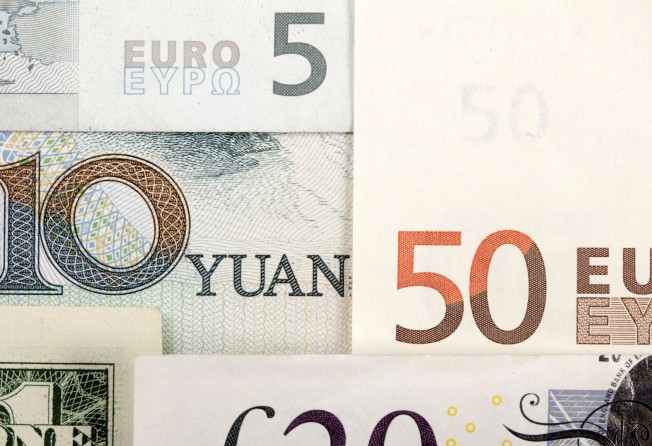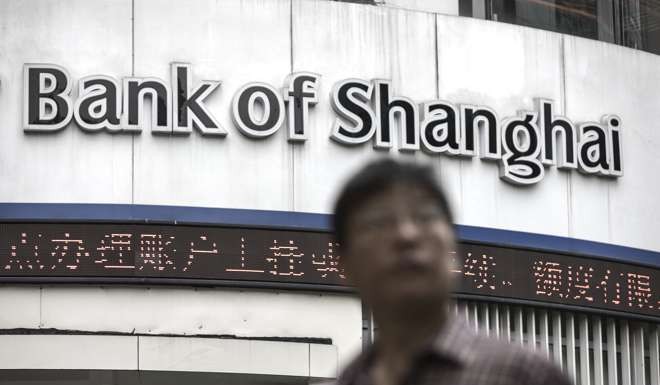Why a weaker Japanese yen might just suit Beijing at the moment
A sustained downtrend in the Japanese currency versus the US dollar will help shield China from critics who harp on about yuan weakness

What goes up must come down. Even with currencies. The Japanese yen, which has risen appreciably against the US dollar over 2016, may be on the cusp of turning lower. A weaker yen would in turn help Beijing maintain the yuan’s stability versus a basket of currencies given the current strength of the dollar versus China’s own currency.
Having begun 2016 at 120 yen to the US dollar, the Japanese currency had risen to just below 104 to the greenback at the end of last week. Looking ahead, US firm Morgan Stanley has mooted the idea that the yen could fall materially versus the dollar by the second quarter of 2017.
“Yield differentials have turned in favour of the US dollar and with US economic data coming on the strong side … the [United States] seems to have to choose between a higher US dollar or higher bond yields,” Morgan Stanley wrote on Friday.
More broad-based dollar strength would by definition imply a weaker yen versus the dollar.
But the yen might still fall versus the dollar if the outcome was higher US bond yields that attracted Japanese investors to dollar-denominated US Treasuries in preference to the derisory returns offered by Japanese Government Bonds (JGBs).
Japan’s monetary policy settings currently seek to keep the yield on 10-year JGBs near zero.
Of course, very low or negative Japanese interest rates, especially when there is no end in sight to the Bank of Japan’s ultra-accommodative monetary policy settings, might invite renewed demand for investments in yen-denominated Japanese equities.
Mitsubishi UFJ Morgan Stanley Securities (MUMSS) noted on Thursday that non-Japanese investors were “net sellers of Japanese equities to the tune of about 6.2 trillion yen during January to September 2016,” but might now be coming back.
Given that 6.2 trillion yen currently equates to some US$59.5 billion, it may seem odd that while overseas investors were pulling so much money out of Japan’s yen-denominated equity market, the yen itself was rising to 101 from 120 against the dollar.

Surely if overseas investors were receiving yen as the proceeds from sold Japanese equities, they would also then sell yen in order to convert the proceedings into their mother currency? Shouldn’t the dollar have risen versus the yen?
But that would also mean the investor in Japanese stocks had taken on a yen currency exposure when the equity position was entered. So if the yen weakened versus the dollar during the lifetime of the equity investment, the investor would find that upon exiting the trade, any yen-denominated profits would purchase fewer dollars.
To avoid that risk, and given that a weaker yen might anyway have been implied by the same policy conditions that originally encouraged international investors to buy Japanese equities, currency hedges may have been put on.
Dollars may have been bought versus Japan’s currency at the same time as yen was invested in Japanese equities.
If that were the case, as overseas investors exited the equity trades in the first three quarters of 2016, unwinding such currency hedges might have meant selling dollars versus yen.
That might help explain some of the move to 101 from 120.
Now however, MUMSS sees signs in early October that foreign investors are returning to buy Japanese equities and views “this as a major sign of change in foreign investors’ stance from selling to buying Japanese stocks.”
It is therefore possible that, if overseas investors are indeed now moving back into yen-denominated equity trades, then the foreign exchange market might well infer that any new equity-related currency hedges may again mean the yen falls versus the dollar.
But how does any of this relate to Beijing’s policy towards the yuan?
The answer lies in the fact that China now targets the yuan’s value against a currency basket and not just versus the US dollar, a point re-emphasized by Dutch bank ING on Friday.
“USD/CNY is now happily pushing to new highs for the year without an impending sense of doom,” ING wrote, citing the stability of the CFETS CNY basket introduced by China late last year as proof that “USD/CNY up at 6.76 is a dollar driven move.”
A weaker yen would act as a counterweight in the currency basket to any continuing dollar/yuan rise.
In that scenario it’s much harder for critics of China’s currency policy to harp on about yuan weakness versus the dollar if the yen is also falling against the greenback.
The stars may be aligning for a renewed slide in the yen against the dollar. That might just suit Beijing at the moment.